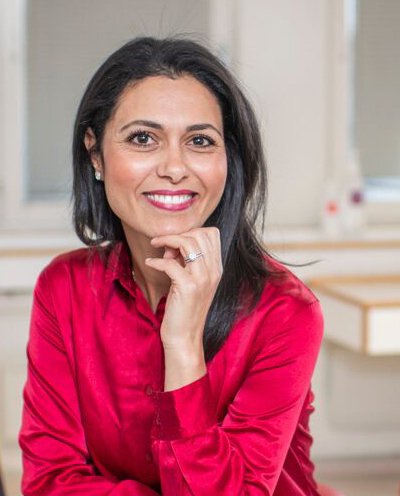“I try to never place blame”
Name: Houda Bahri
Age: 40
What: Works 20 per cent as a health counsellor and 80 per cent with orthodontics as an orthodontist assistant within Folktandvården (the Swedish Dental Service).

“I have been a health counsellor for four years. As health counsellors, we meet all kinds of families, with a background in Sweden as well as other countries. Since I speak Arabic, I mostly help Arabic-speaking families. Some have been in Sweden a month, others a few years. These are ordinary families with children, but since they do not speak the language yet, it is easier to have the health-related discussions in Arabic.
The reason I contact them is because their children need treatment for severe caries. Many families come from areas marred by conflict, they have gone through gruelling situations, they have come face to face with death, so dental health has never really been a priority. They have mainly been fighting to survive.
I often feel how much they all love their children, but everyone is not susceptible to a great amount of change all at once. In those situations, it is our task to make them more susceptible to our message. I think many of them feel guilty over the fact that their child has so much caries that they need to be sedated. They go into a kind of defensive stance. But I try to never place any blame on them, but rather be there for them.
First, I have to build up a certain level of trust with the family. That allows me to listen to their thoughts and ideas, and then inform them of what works and what doesn’t. It is important to give a lot of positive feedback, acceptance and respect.
Then it is about explaining. If you don’t understand the logic behind something, it becomes more difficult to absorb. When I, for example, tell them that the teeth need to rest for two hours between meals and explain that this is because of the mouth’s pH value, they understand, and it becomes something of an ‘aha!’ moment. As a health counsellor, I truly believe that this is a successful approach in working towards improved dental health.”
Text: Fredrik Hedlund, first published in Swedish in Medicinsk Vetenskap No 4/2019
